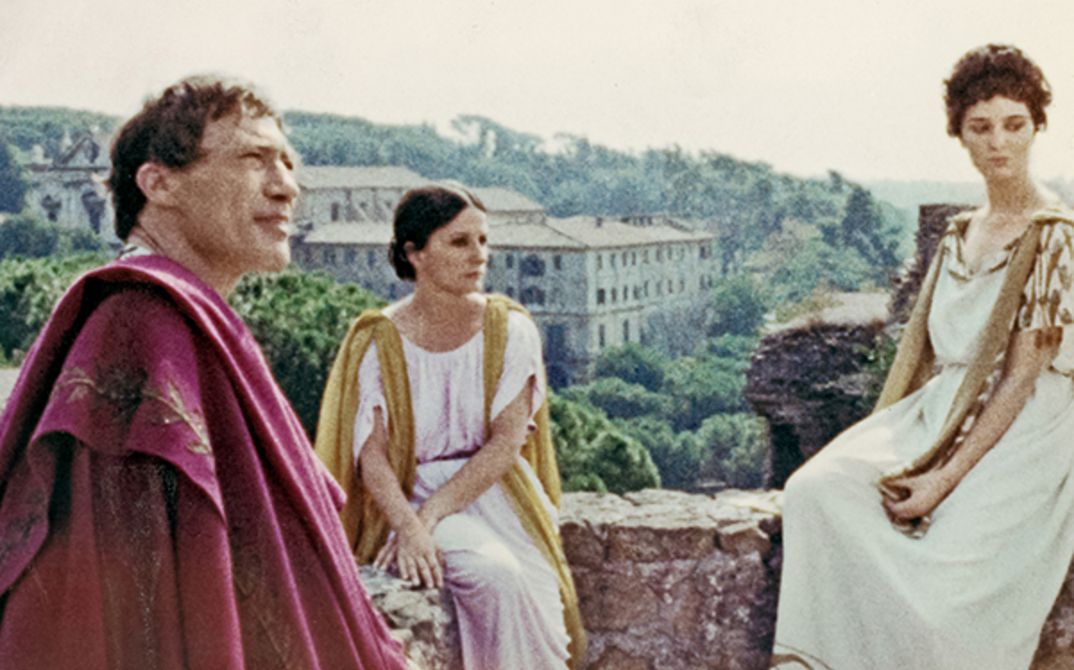88 min. French.
Based on a play by Pierre Corneille, Straub & Huillet’s film is about Othon, who must forsake his bride and marry the niece of the current ruler in order to become emperor. The story is narrated by way of largely static arrangements of one, two or three people before scenes of present-day Rome, complete with traffic noise. Eschewing conventional intonation, the dialogues become a torrent which sweeps details away, even as the theme of the individual and society still remains apparent at its core. Les yeux ne veulent pas en tout temps se fermer ou Peut-être qu’un jour Rome se permettra de choisir à son tour (Othon) is a film of discrepancies which are negotiated between screen and audience in aesthetic terms: between seeing and understanding, between past and present, theatre and cinema, politics and feelings. (ab)
Jean-Marie Straub was born in Metz, France in 1933. In 1951, he started studying in Strasbourg and Nancy, and ran a film club in Metz on the side. Straub went to Paris in the mid-1950s, where he met his future wife Danièle Huillet. That was the start of a close collaboration. In 1958, they moved to Germany and made their first short film, Machorka-Muff, which premiered at the Oberhausen Short Film Festival in 1963. From the late 1960s onwards, Straub and Huillet lived in Italy, where they made their first colour film, Les yeux ne veulent pas en tout temps se fermer ou Peut-être qu’un jour Rome se permettra de choisir à son tour (Othon)(1970). Their subsequent films were primarily literary adaptations. From the mid-2000s onwards, they mainly made short films. Since the death of his wife in 2006, Straub has continued to make films on his own.
Danièle Huillet was born in Paris in 1936. After finishing school, she lived in Paris. In the mid-1950s she met her future husband Jean-Marie Straub, with whom she worked closely from then on. In 1958, they moved to Germany and made their first short film, Machorka-Muff, which premiered at the Oberhausen Short Film Festival in 1963. From the late 1960s onwards, Straub and Huillet lived in Italy, where they made their first colour film, Les yeux ne veulent pas en tout temps se fermer ou Peut-être qu’un jour Rome se permettra de choisir à son tour (Othon) (1970). Their subsequent films were primarily literary adaptations. From the mid-2000s onwards, they mainly made short films. Huillet died in 2006.
